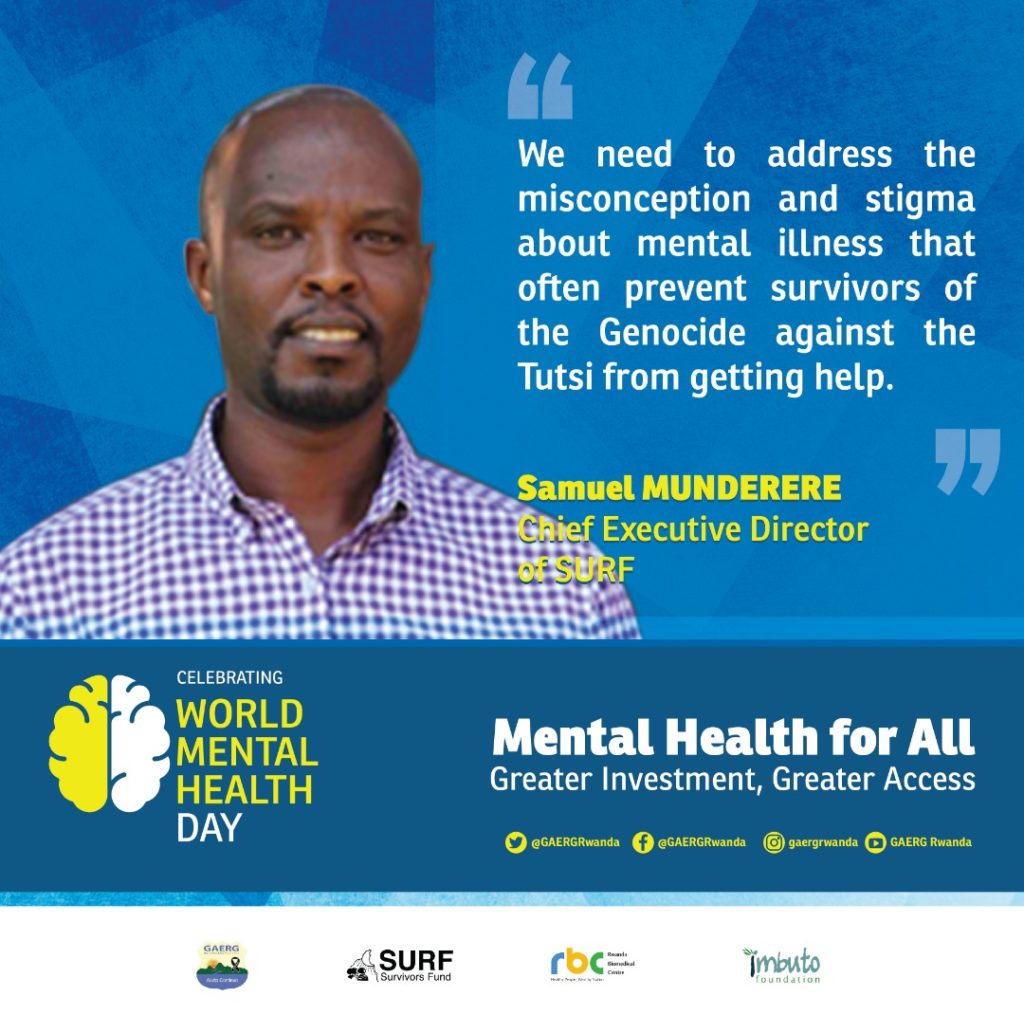
To mark World Mental Health Day 2020 earlier this month, on 10th October, Survivors Fund (SURF) and GAERG produced a short film to raise awareness of the mental health situation of Survivors of the Genocide against the Tutsi in Rwanda.
In the aftermath of 1994, genocide survivors showed high rates of mental health and psychosocial problems due to the brutality that the majority of them had been exposed or witness to. Entire family systems as well as the general social fabric that formerly provided support were destroyed due to losses of family members and growing mistrust and fear following the genocide. Studies analysing the mental health situation in Rwanda following the genocide have mainly focused on groups of widows and orphans or children living in child-headed households. An elevated level of depressive and anxious symptoms as well as post-traumatic stress disorder (PTSD) was found in each of these groups.
The recent Rwanda Mental Health Survey (RMHS 2018) conducted by the Rwanda Biomedical Centre (RBC) revealed the increased prevalence of various mental disorders within the general Rwandan population and within genocide survivors. Results from this survey indicated that:
- Major depressive episodes (MDD) occurred in 12% of the general population and 35% of Genocide Survivors
- Post-Traumatic Stress Disorder (PTSD) occurred in 3.6% of the general population and 27% of Genocide survivors
Survivors and their families continue to present with considerable rates of posttraumatic stress disorder (PTSD) and substantial depressive and anxiety symptoms. Studies evidence a strong association between health problems and psychosocial factors such as social integration. Posttraumatic stress reactions were especially elevated in adult survivors who had experienced a high number of traumatic events, had poor physical health and were lacking in social integration.
Survivors Fund (SURF) and our partners are working to address this through programmes such as our Youth Counselling Programme, in partnership with Network for Africa, our Legal and Counselling Helpline in partnership with INSPIRE!Africa and Clifford Chance, and our Youth Counselling Camps in partnership with Foundation Rwanda.
